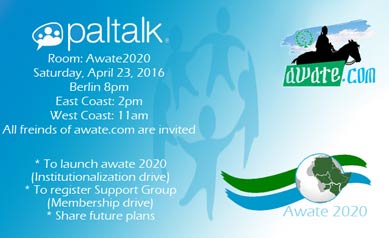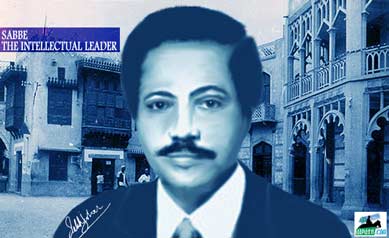National Salvation: A Citizen’s Approach Citizen’s Initiative for the Salvation of Eritrea

National Salvation: A Citizen’s Approach Citizen’s Initiative for the Salvation of Eritrea
(CISE) Ericitizens@yahoo.com September 25, 2002
Concerned by the deepening crisis that threatens to endanger the very foundation of our nation Eritrea;
Disheartened by the culture of polarization that impedes debate, compromise and peaceful resolution to conflicts;
Inspired by Eritrea’s indomitable spirit that calls on us to overcome overwhelming odds;
Empowered by the awareness that Eritrea’s solutions lie only in the hands of ordinary citizens who have the right and duty to change the course of their history;
We, the undersigned Eritreans, undertook a citizen’s initiative and met in Soesterberg (Amersfoort), The Netherlands on September 6 and 7, 2002.
The purpose of the meeting was to:
· Assess the magnitude of the problems confronting Eritrea; · Lay the groundwork for a bigger and more representative people’s conference · Produce a procedure that will guide the ensuing conference; · Elect a steering committee that will assume the responsibility for convening the conference.
The Awate Foundation, an Eritrean organization, in concert with other Eritrean human rights activists, organized the meeting.
1. Defining The Problem
We believe that Eritrea is in a state of political, economic and social crisis. We fear that if the crisis is not attended to within a short period of time, Eritrea faces a high risk of collapsing into chaos and becoming a failed state. Our society is fragmented, disenfranchised, dis-empowered, demoralized and its sense of unity and purpose placed in question. Our society needs to be an integrated whole and Eritrea currently lacks a mechanism to bring this about. We believe that the sad states of affairs that Eritrea faces are a result of a culture of polarization, irresponsible governance, an uncoordinated opposition and lack of will to dig deeper into the root causes of Eritrea’s persistent problems of identity and inequity.
1.1 Culture of Polarization: A negative consequence of the legacy of colonialism and the liberation struggle on the Eritrean psyche is the development of a zero-sum or win-lose culture, which defines victory of one party as the vanquishing and defeat of the other party. This has brought about a culture of mistrust and suspicion where members of organized groups brandish their refusal to discuss, dialogue and compromise as a strength. This culture scorns compromise, promotes an attitude of polarization, exclusion, and a paternalistic attitude where the “victor” seeks to impose solutions on the “vanquished.” Instead of adjusting their values and priorities to address the wants and needs of the people, fronts and political groups have persisted in wanting to mold the Eritrean people and nation into their ideological image of a “people” and a “nation.”
1.2 Irresponsible Governance: The government of Eritrea is an unjust system that is at odds with the values of constitutionalism and democracy and, thus, is without legitimacy. It is not responsive to the needs and aspirations of the people and is indifferent to any sense of accountability towards them. It promotes chauvinism, militarism, and parochial interests. It is wanton violator of the civil liberties and basic human rights of Eritreans. It escalates minor differences into major ones and fundamental political disagreements to violent conflicts. It instills fear, confusion and suspicion among the citizens. The government’s behavior continues to endanger the safety and security of the country and its callous behavior demonstrates a betrayal of the promises of the liberation struggle for which thousands of dear lives were sacrificed.
1.3 Absence of A Coordinated Vehicle of Opposition: By banning and persecuting all expressions of dissent, the government has played a destructive role in denying citizens a basic right to organize freely and express opposition. While acknowledging this, we believe that the opposition has many shortcomings. The citizens have not been presented with a well-coordinated opposition that galvanizes their support. Regretfully, the opposition is still seen by many Eritreans as too-focused on old grudges and personalities. We believe, unanimously, that the opposition needs to work on its image, change its attitudes, evaluate its organizational practices and develop a political program, which is in line with post-independent Eritrea.
1.4 Misdiagnosing Problems: A certain segment of our society-including the intelligentsia-on whose capacity the nation ought to rightfully depend on for wisdom and guidance, has not shown its willingness to shed the straightjackets of organizational affiliation, to get involved and to present a diagnosis that delves into the roots of our persistent problems. Issues dealing with identity, distribution of resources, land use, governmental arrangement, language are some of the core and persistent challenges that deserve the attention of Eritrean social historians who can see them in the context of Eritrea’s formula for statehood and sustained unity.
It is our consensus view that if a solution to all these problems is not forthcoming soon, Eritrea risks creating a political vacuum which threatens its continued viability as a State. This is why we believe that our mission is no less than “salvation of the nation.”
2. FRAMEWORK OF A SOLUTION
This session is called “A Citizen’s Approach” because the solutions to all these problems can only come from Eritrean citizens who represent Eritrea’s diversity. We believe the bastions of a citizen’s approach are open discussions, debates and compromises. The organizers of the meeting had presented the following values as guiding principles to frame a convention of a larger, more representative conference:
2.1 National; 2.2 Democratic; 2.3 Constitutional; 2.4 Peaceful and 2.5 Secular
Although not entirely representative of the multiplicity of Eritrea, we who attended the conference in The Netherlands are, in background, upbringing, political orientation and faith, sufficiently diverse enough to present a wide-ranging glimpse of the views held by Eritreans. To promote a new culture of candid dialogue, we discussed each concept to arrive at a common ground that can serve as a platform for future conventions that are larger and more inclusive. Realizing the gravity and importance of these issues, we took maximum care to reach consensus and unanimity by focusing upon common denominators. Accordingly, the discussions centered on finding meaning to these universal concepts within an Eritrean context:
2.1 National: Although by no means conflict-free, and although colonialism and the liberation struggle movements have tested this value time after time, we agree that Eritreans have repeatedly demonstrated that they have a willingness to live together. We believe that harnessing this need requires continued resolve and readiness to listen to the concerns of the people;
2.2 Democratic: There may be a difference of opinion on whether this means a centralized or decentralized arrangement, and what the criteria is to be organized into a political party; however, we agree, unanimously, that the type of governance that best serves the interests of the people is democracy defined as a system where power and sovereignty rests with the people. In other words, the government should be put in place with the consent of the governed. And it should be a “government of the people, by the people and for the people.”
2.3 Constitutional: The importance of constitutionalism and rule of law and having a social contract that the Eritrean people should willingly enter to define their rights and duties were the subjects of some discussion. Since there was no disagreement on “constitutionalism” as a concept, the participants were invited to discuss the merits and demerits of the 1997 Eritrean constitution, as private citizens, and not representatives of organizations they may belong to. As critics of the culture of polarization, we believe it is incumbent upon us to at least explore the different viewpoints on this important Eritrean document. On this issue, among other issues, there was a coming of minds and crystallization of ideas which validated our view that all Eritrean problems can be solved if all parties are willing to discuss and compromise on the issues instead of using a “take it or leave it” approach.
2.4 Peaceful: It was easily agreed that a citizens’ assembly whose agenda, among other issues, includes the promotion of peaceful co-existence and conflict resolution must, by definition, pursue peaceful means. As private citizens, we believe all politics in Eritrea should be conducted democratically and peacefully and we commit ourselves to contribute to creating an environment whereby the citizens’ entitlement to peaceful conflict resolution is restored.
2.5 Secular: some participants saw this concept as a red herring for autocratic governments to stifle the religious freedom of citizens. It was argued that the term “secularism” is a product of Europe and its unique history where religious institutions and kings claiming divine guidance abused the citizens. It was argued that, historically, there was no similar trend in Eritrea and that the people had negotiated a mechanism for peaceful co-existence. In present day Eritrea, where churches and mosques lack autonomy and citizens’ right to worship is severely curtailed in the name of “secularism”, it was believed that the value we should promote is “empowering the citizen to be free of a government that infringes on his/her right of worship.”
3. Mission Statement
In the end, the values all participants agreed to uphold were that “we believe in contributing towards the development of a national political force on the basis of national, democratic, peaceful, and constitutional values for the purpose of empowering the citizen to establish a government that is national, democratic, peaceful, constitutional and one that does not infringe on the religious freedom of its citizens.”
4. Long Term Objective
Our objective is to contribute towards the creation of a citizen-centered grassroots movement that moves in lockstep with the will of the Eritrean people towards one objective: to confer power to the people. We believe that such a movement should be forward-looking, focus on addressing the issues of ALL Eritreans, without exclusion, and that it should, at all times, stand against injustice.
5. Guiding Principles
5.1 Promote a culture of truth and revival of the spirit of debate; 5.2 Promote a belief that all Eritreans are State stakeholders; 5.3 Promote in the creation of a healing environment that empowers the citizen, improves national harmony, and bridges divides; 5.4 Promote the diversity of Eritrea and, in so doing, a culture of compromise and tolerance; 5.5 Promote the importance of equitable resource distribution, democracy and peaceful transfer of power;
6. Action Plan
We aim to convene a broader, more representative people’s convention, inclusive of all Eritreans’ viewpoints, within six months. The participants will number 150 to 200. The agenda, once again, is national salvation with a theme reiterating that “Power Belongs To The People.” Towards this end, we have elected a seven-member Steering Committee, accountable to the participants of the meeting. The steering committee, henceforth known as the steering committee of Citizens’ Initiative for the Salvation of Eritrea (CISE), has been directed to:
6.1 Reach out to all citizens with a conscious effort to represent Eritrea’s diversity; 6.2 Reach out to all of Eritrea’s civil society groups and centers of communication; 6.3 Study means of addressing issues of logistics and resources; 6.4 Make a Call for Papers on issues that contribute towards Eritrea’s salvation.
7. A Citizen’s Call
7.1 We call on the government of Eritrea to immediately release all political prisoners and prisoners of conscience and immediately release the names of all disappeared citizens and to cease from its present path of conflict escalation which can only bring further destitution;
7.2 We call on the opposition to reach out beyond its committed supporters and to ceaselessly work to allay the doubts and fears of independent and unaligned Eritreans;
7.3 We call on Eritreans in Diaspora to recognize that the country is in desperate situation; that harmony among ALL Eritreans is important; that national accord is the only way out; and that we must place the interest of the nation above organizational interest;
7.4 We call on ALL Eritreans to welcome open and free debate, without acrimony and intimidation, regarding our country and its direction.
8. Who We Are
We are Eritrean citizens, from different backgrounds, faiths and affiliations; acting independently of any political party, claiming to represent no one but ourselves, motivated by the noblest call of citizens to their nation. We believe we are duty-bound to contribute toward the ongoing efforts to save Eritrea from its present predicament and reverse the dangerous course of disintegration it is heading towards. We hold that the state of our country is the concern of all Eritreans, organized or not, and that we should not and cannot stand aside and watch a tragedy unfold.
The names* of those who have participated in the Soesterberg meeting and have pledged to contribute to the cause of Eritrea’s salvation are listed below.
Signed:
Bashir Ishaq Abdella, Sweden
Merachew Berhe, Switzerland
Saleh O. Gadi, United States
Freweini Ghebresadick, Germany
Mehret Ghebreyesus, United States
Semere Tesfamicael Habtemariam, United States
Elias Habteselassie, Kenya
Mohammed Nur Saleh Kerrani, Sweden
Dawit Mesfin, United Kingdom
Idris D. Omer, United Kingdom
Dr. Jalaladin M. Saleh, United Kingdom
Abdulrahman Sayed, United Kingdom
Paulos Tesfagiorgis, United States
Seyoum Tesfaye, United States
Makonnen Woldu, Australia
Habtom Yohannes, The Netherlands
Saleh A. A. Younis, United States
* In consideration of his country of residence, we have withheld the name of one participant.
CISE can be reached at Ericitizens@yahoo.com




Awate Forum